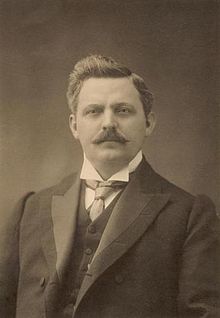Henry Willis (Australian politician)
| Henry Willis | |
|---|---|
 |
|
| Member of the Australian Parliament for Robertson |
|
|
In office 29 March 1901 – 13 April 1910 |
|
| Preceded by | New seat |
| Succeeded by | William Johnson |
| Personal details | |
| Born |
6 April 1860 Port Adelaide, South Australia |
| Died | 23 February 1950 (aged 89) Middle Harbour |
| Nationality | Australian |
| Political party |
Free Trade (1901–06) Anti-Socialist (1906–09) Liberal (1909–13) |
| Occupation | Tanner |
Henry Willis (6 April 1860 – 23 February 1950) was an Australian politician, born in Port Adelaide, South Australia to English mariner John Willis and Jane, née Emmerson. Having been locally educated, Willis worked at his father's tannery, and in 1884 became a committee member of the South Australian Literary Societies' Union. The following year he had established his own tannery and was serving on the local board of health and Hindmarsh Municipal Council.
Willis relocated to Sydney in 1888, intending to become a minister in the Church of England. He married Annie Louisa Moore at Campbelltown on 20 September 1889, with whom he had five children. He was the first mayor of Cabramatta and Canley Vale in 1893 and served on Camden (1897–99) and Randwick (1899–1902) councils.
Willis was elected to the Australian House of Representatives in 1901, as the Free Trade member for Robertson. He remained in this position until 1910, when he was defeated, but he gained the seat of Upper Hunter in the New South Wales Legislative Assembly later that year as a member of the Liberal Party.
When Labor lost the majority in the Assembly in July 1911 it appointed Willis, who, as an Opposition member, had offered himself to avoid a dissolution, as Speaker. His Liberal colleagues accused him of betraying his party, some even calling him "Judas" and a "political leper". Having embraced Robert Lowe's ideals, Willis became a more active Speaker, claiming authority to remove members, censor their speeches and questions, and exclude journalists from the press gallery. He also completely reformed the Speaker's office and staff, but most of these reforms were ephemeral.
...
Wikipedia
